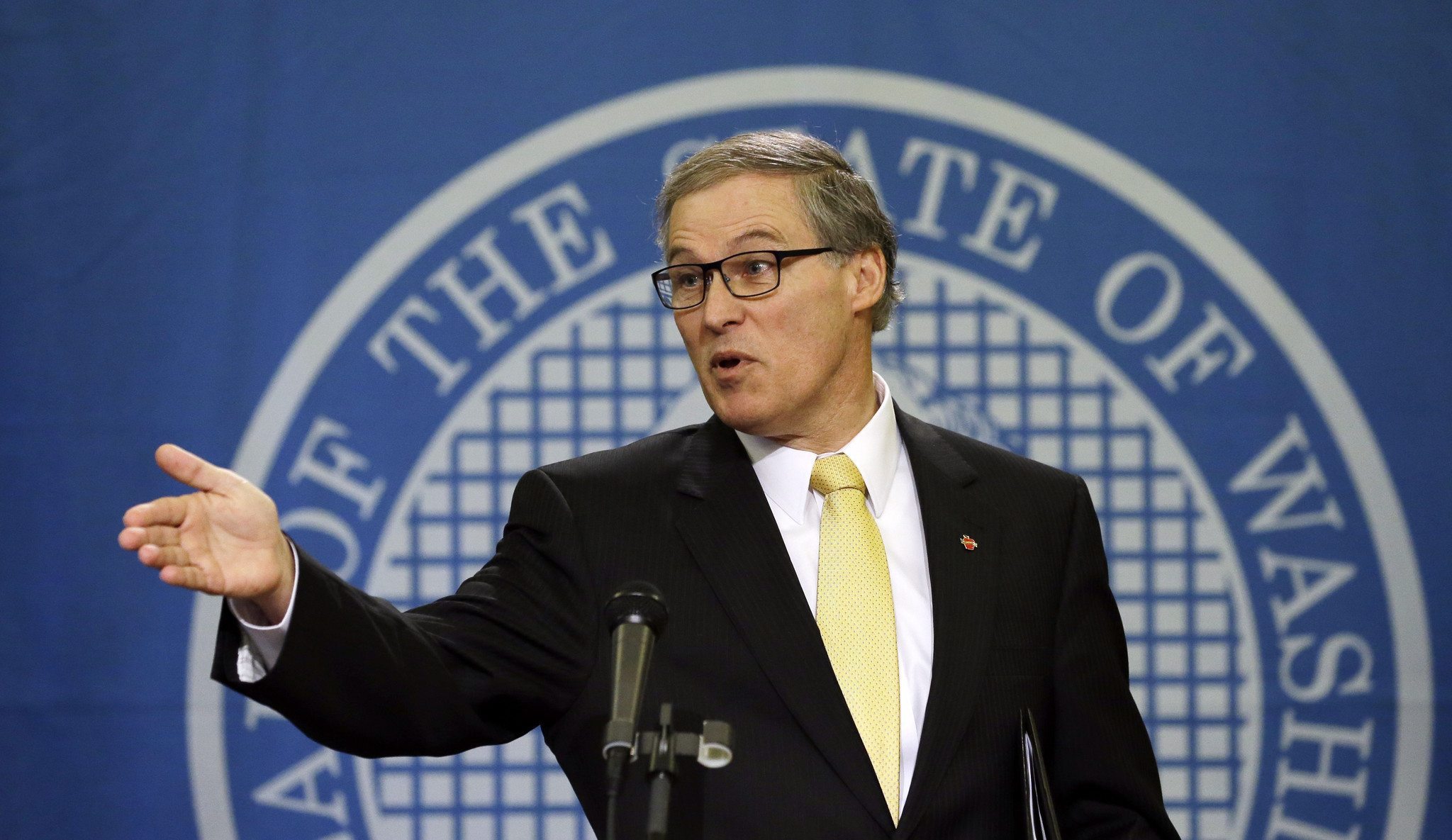In March, Jay Inslee’s Department of Ecology pulled his carbon rule in order to make changes to it. The carbon rule — hastily written on Inslee’s order last year — carried the obvious consequence of companies simply leaving the state and doing business elsewhere due to increased costs. The highly negative feedback submitted by stakeholders forced Ecology to pull back the scheme from consideration.
Well, Ecology released its proposed “improvements” to the carbon rule today — a rule Inslee thinks he can impose on our state by executive order.
As Shift reported, under the rejected carbon rule, the industries deemed as “large emitters” would be required to reduce carbon emissions by 5 percent every three years.
Under the new rule, the “large emitters” would be required to “show once every three years that they’re reducing their emissions an average of 1.7 percent annually.”
Incidentally, some reports appear to be a bit confused about what the new rule requires. For an example, the Associated Press reported, “… large emitters would be required to reduce carbon emissions by an average of 1.7 percent every three years.”
To be clear, Inslee’s new rule requires companies deemed as “large emitters” (check out the list here) to prove once every three years that they are reducing carbon emission an average of 1.7 percent per year. Meaning that the new carbon rule does not change the first proposal’s regulation requirements — companies will have to reduce carbon emissions by about 5 percent every three years.
As the Seattle Times reports,
Like the earlier proposal, the rule would require affected industries to gradually reduce their emissions — by an average 1.7 percent a year — by reducing emissions at their own facilities or other actions, such as paying for carbon-reduction projects elsewhere.
So, what are the big “improvements”? According to the Seattle Times, the new rule would “try to ease the burden on some affected industries by delaying compliance and giving them credit for past energy-efficiency investments.”
In other words, there are no real improvements — just some passing attempt to be fair to industries that are already making efforts to reduce emissions.
The new rule’s cost to industry is projected at $1.4 billion to $2.8 billion over 20 years.
So, essentially, Inslee’s latest rule would reward companies for suspending operations in Washington State and selling their carbon credits. As the Washington Policy Center’s Todd Myers previously put it, “[The DOE’s] plan actually pays for taking jobs overseas, but punishes for keeping jobs here. If you stay, your costs go up.”
Yet, if you take Ecology’s word for it, imposing Inslee’s carbon rule on our state would result in rainbows, ponies, and puppies for everyone. We will create some kind of Garden of Eden in our state, and all the “societal benefits of cleaner air would far outweigh the cost.”
Never mind the reality that Washington is a minuscule fraction of 1% of global emissions. Achieving 1995 levels (the ultimate pursuit of Inslee’s carbon rule) would only serve to reduce that insignificant fraction to an even more insignificant fraction. In other words, there are no “societal benefits.” There are just costs.
What kind of costs are we talking about here?
Well, Alcoa– the world’s third largest producer of aluminum—already made the costs quite clear. In anticipation of Inslee’s carbon rule and higher energy, Alcoa announced its intention to close factories in Ferndale and Wenatchee, resulting in thousands of lost jobs.
As for working families across Washington State, state bureaucrats didn’t bother calculating how much more consumers can expect to pay — the inevitable increase in fuel prices will impact everything from the price paid at the gasoline pump to grocery and electric bills. But, if you can believe them, they promise the cost increase will be “relatively small.”
If Inslee does attempt to jam through any future carbon rule by executive order, he will face serious legal challenges. Many lawmakers, including Republican state Senator Doug Ericksen, does not believe Inslee has the authority “to pursue those regulations without the Legislature’s approval.” Any future carbon rule would be put to a legal test.




